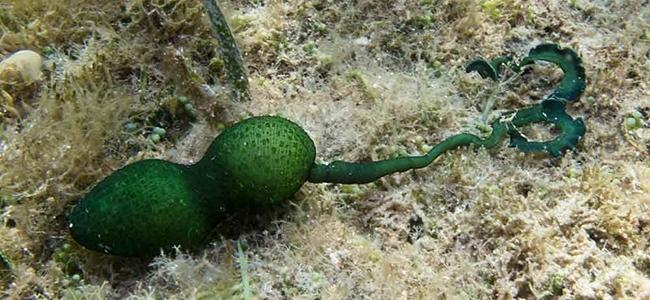The Echiurans or spoon worms are the only group belonging to the annelids that lack body segmentation. Recent studies question the correct classification of Echiurans and advocate that they would form per se a phylum independent of the annelids as they were considered in the past. However, there is still no unanimity and so they remain part of the annelids.
Etymologically, the name Echiurans derives from the Greek word 'echinos' (spine) and 'oura' (tail), as it describes one of their distinctive features, the presence of quetae on the posterior end of the body.
The Echiurans group consists of a small number of species (230 described), entirely of marine life, which inhabit sand, mud and rock crevices, mostly in shallow water, although there are some species found at great depths. They have a tubular retractile proboscis with a flattened end, which can extend considerably (the proboscis of the species Bonellia viridis can reach 2 meters in length) and which they use to capture their food, consisting mainly of detritus. They also use this retractable parto of the body to move and bury themselves in the marine sediment, thus, these species aerate and stir the bottom, promoting the ecosystem to be more diverse and therefore forming a balanced ecosystem.
As for sizes, they range from species that barely exceed a few millimeters, to species that can reach 50 cm in length. Theri body generally has a cilindrical and tubular shapre. For some species of Echiurans the sexual dimorphism is quite exacerbated, with female individuals beeing much larger than the male ones.
The 230 described species of Echiurans are subclassified into two suborders...
- Bonelliida, including the families Bonelliidae and Ikedidae.
- Echiurida, that includes tree families: Echiuridae, Thalassematidae and Urechidae.
